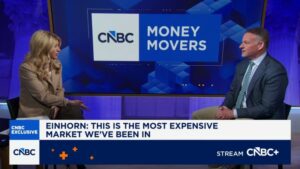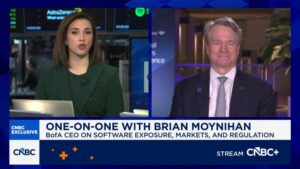The Vodafone (LSE:VOD) share price was last over 80p in May 2023. Since October 2023, the company’s stock has traded in a range of 62.71p-79.50p. This is a far cry from March 2018, when it was the UK’s most valuable with a stock market valuation in excess of £70bn.
Currently (1 November), its shares change hands for around 72p. As a shareholder, its market cap of just under £19bn continues to frustrate me. That’s because — using both an asset and earnings-based approach — I believe the company’s worth significantly more.
Let me explain.
Assets and liabilities
At 31 March 2024, the company’s book value was €61bn (£51.3bn). This is how much cash would be left over if it sold all of its assets for the amounts stated in its accounts, and then used the proceeds to repay its liabilities.
Included on Vodafone’s balance sheet are various intangible assets like goodwill and licences. These can be difficult to value. But Kantar, a market research company, produces an annual survey which measures a company’s brand, another non-physical asset.
For the past eight years, the top spot has gone to Vodafone. The latest report places a value of £14.6bn on the telecoms giant’s brand. Based on its analysis over several years, Kantar claims that between 33% and 50% of a stock’s value is typically derived from this particular intangible asset.
If they’re right, Vodafone should be valued somewhere between £29.2bn and £43.8bn.
Profitability
It’s a similar story if earnings are used.
The average price-to-earnings (P/E) ratio of 202 listed companies in the telecoms sector is 13.3.
For the year ending 31 March 2025 (FY25), the group‘s expected to report earnings per share of 8.65 euro cents (7.26p). This suggests Vodafone should be worth 96p a share (£25.1bn).
Real deals
But perhaps the best measure of a company’s value is to look at actual deals in the industry in which it operates.
In May 2024, Vodafone sold its Spanish division for 5.6 times its adjusted EBITDAaL (earnings before interest, tax, depreciation, and amortisation, after leases).
It’s also entered into a binding agreement to offload its business in Italy for a multiple of 7.6.
Applying the average of these two figures (6.6) to the group’s expected adjusted EBITDAaL for FY25 of €11bn (£9.3bn), produces a possible valuation of £61.4bn.
On reflection
The output from this analysis is a range of values between £25.1bn and £61.4bn. This implies that the company’s share price is undervalued by between 31% and 226%.
However, the reality is that it doesn’t matter what I think Vodafone’s worth.
If the majority of investors believe the stock’s fairly valued, then the share price isn’t going to change very much from its current level.
I suspect the recent stagnation in the company’s stock price is due to investors’ concerns about the group’s large borrowings. And its declining performance in Germany, which accounts for around 30% of revenue.
But if the company’s restructuring plan starts to deliver an improved financial performance, then this could change. Of course, there’s no guarantee that it’ll work. However, I remain hopeful that the green shoots of a recovery will start to emerge soon and that others will then agree with me that Vodafone’s share price is currently undervalued.
This post was originally published on Motley Fool







